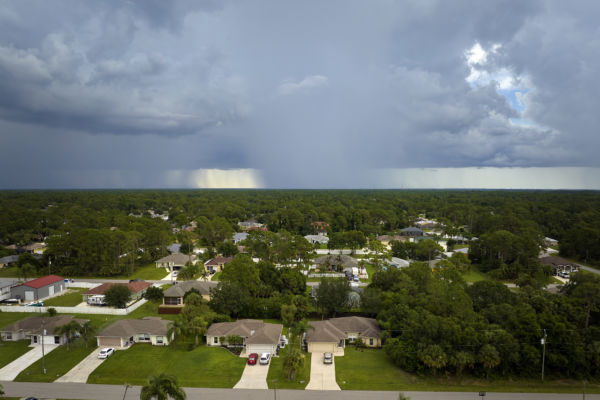Why Is My AC Not Working After a Storm?
July 02, 2024

Due to its location on the Atlantic coast, Florida is one of the most hurricane-prone states in the nation. Additionally, ocean temperatures are rising, increasing the number and intensity of storms in the region. Residents in Ft. Myers and surrounding areas also have to contend with high heat and humidity levels during the summer, making working air conditioning a must.
If your AC is not working after a storm, you may be dealing with one of these problems:
- Tripped breaker
- Failed capacitor
- Obstructed or damaged outside unit
- Water damage to electrical components
- Refrigerant leaks
Air conditioning systems have wires, coils, and other complex components, so it's important to seek advice from an experienced HVAC professional. Attempting to repair an AC unit on your own can worsen the problem, increasing your repair costs and leaving you without working air conditioning for longer than necessary.
Get your AC unit up and running after a storm.
Since 1989, Advanced Air has been providing expert AC repair services to residents of Ft. Myers and other parts of Florida. We offer a 100% satisfaction guarantee and no-surprise pricing, making it easy to keep your home comfortable in all weather conditions.
Should You Turn Off an Air Conditioner During a Storm?
Every time a storm heads toward Ft. Myers, we receive these questions from customers:
- Can you have AC on during a thunderstorm?
- Should you turn off your air conditioner during a storm?
To prevent damage, you should turn off your air conditioner during a thunderstorm. Lightning is more likely to strike an AC unit when it's using electricity. Turning off an air conditioner during thunderstorms reduces the risk of storm-related damage, which may help you avoid costly repairs.
Common Causes of AC Problems After a Storm
Tripped Breaker
A circuit breaker is a switch designed to protect your electrical system. Breakers trip when they can't handle the current load or manage the flow of electricity. Tripping shuts off the power, preventing damage that could lead to system malfunctions or fires. Check your circuit breaker if your AC system isn't working after a storm. It may need to be repaired or replaced.
Failed Capacitor
In an air conditioning system, the capacitor stores electricity and then sends it to the motor, which enables the system to start its cooling cycle. If your capacitor fails during a storm, you may notice unusual noises coming from the compressor or a lack of cool air coming from the unit. Since the capacitor sends energy to the motor, your AC system may have trouble starting up.
Obstructed or Damaged Outside Unit
Central air conditioning systems have outdoor units, which allow them to release warm air from your home. Without an outdoor unit, all that warm air would stay in your house, making it almost impossible to achieve your desired temperature. During a heavy storm, the wind can pick up patio furniture and other items, causing them to crash into your outdoor AC unit.
Heavy winds also cause leaves, tree limbs, and other debris to blow around your yard. If these items end up in your outdoor unit, they could cause a blockage that prevents your AC system from working properly. If you have a blocked or obstructed outdoor unit, you may notice that your air conditioner is blowing hot air instead of cold air. It's also common for blocked units to make more noise than usual.
Water Damage to Electrical Components
Tourists flock to Ft. Myers to enjoy its beautiful beaches and mild weather. However, heavy storms transform those beaches into hazardous areas. During a hurricane, ocean water can flood your house, damaging your AC system and other appliances. Water contains ions that conduct electricity, which means it's capable of creating an electrical current. Large currents can also damage the circuits in an AC unit, rendering it inoperable.
Refrigerant Leaks
Air conditioning systems use refrigerant to absorb heat. Once the refrigerant absorbs heat, it carries it to the condenser coils in your outdoor unit. This is where the heat dissipates, leaving your home much cooler than before. If you have hail damage to an AC unit or a large tree branch hits your system, you may end up with a leak that allows refrigerant to escape.
If your system doesn't have enough refrigerant, it can't absorb heat effectively. One of the first signs of a leak is warm or hot air blowing from your air conditioner. Additionally, you may notice unusual noises.
Get expert help with your AC system.
If you need AC repair, Advanced Air is standing by to help. We'll get your system back up and running within 24 hours, ensuring you're comfortable even in the wake of a major storm.
- Posted in:
- Air Conditioning

